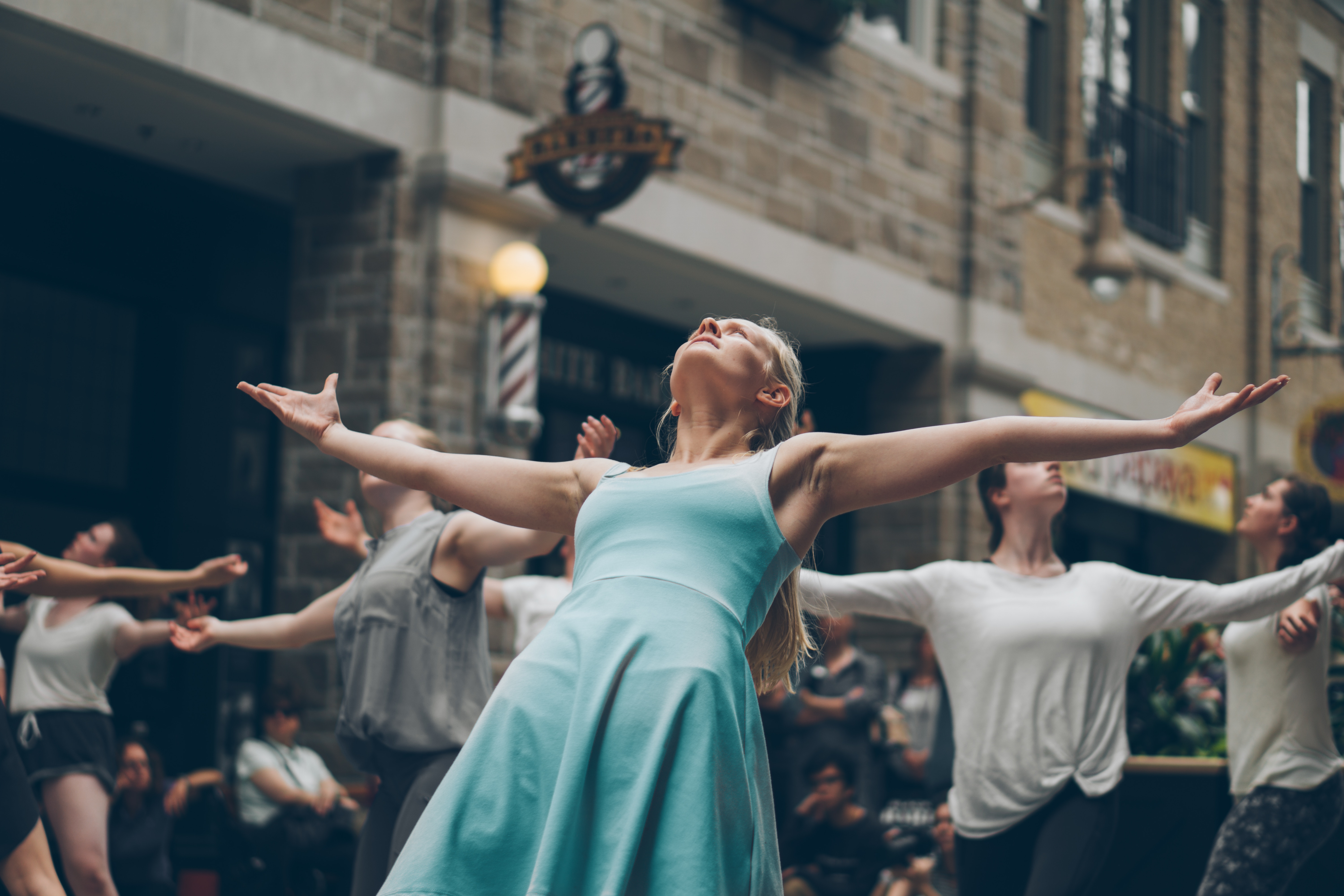
When I run into former colleagues, I dread the inevitable question, “So where are you working these days?”
I take a deep breath, lengthen my spine, and with defiance and a touch of embarrassment, I respond that I’m currently staying at home with our little one—and that I unabashedly love it.
Their eyes always widen and I imagine the internal judgment. The same judgement that I used to give, unsolicited, to those I knew who gave up their jobs when a little one came along.
To begin, let me apologize to all the women I judged for not being working moms. And the ones I judged for working too hard. Being a parent is a radical choice. We try to make decisions that benefit not only our children, but ourselves.
We’re all just trying to get along in this messy, imperfect life.
People who know me well are unsurprised to hear how judgmental I can be. Until recently, my Myers-Briggs personality rated incredibly high on the judge-y scale. I grew up with a very clear sense of right and wrong, and little tolerance for what I perceived as wrong.
This translated into my personal expectation of feminism.
Of course I’ll be a working mom. Of course I’ll juggle all the things and be all the people. Of course. Of course. Of course.
Parenthood kicks ass—both in the “yay I totally dig being a parent” and the “my ass is being kicked” varieties.
Becoming a parent not only reaffirmed my commitment to reproductive justice, equality, and access for all, it forced me to re-evaluate my assumptions about what it means to be a feminist.
And the conclusion I came to?
Choice.
Feminism is choice. It’s the choice to be the best that we can be in the circumstances we find ourselves. It’s the choice to determine our own destiny. To be, to do, to create a life that is authentic and true. When we are able to make the decisions that are best for us, everyone wins.
How often do we judge those walking through our lives? Be honest. I’m completely guilty. Assumptions tear our relationships apart—what keeps them from tearing apart our communities, and the very fabric of our society?
I spent a month sleeping on the floor of our son’s nursery. A month. My hips hurt every morning until my less sleep-deprived husband blew up a camp mat for me to sleep on.
Sleep has been our biggest parenting challenge. No one sees that when I post smiley happy photos of my family on Facebook. No one witnessed the moment I cried myself to sleep after discovering my little one had gnawed his way across his crib railing at 3 a.m.
Judgement. It’s a silent killer of souls.
I’m a stay-at-home mom and a feminist. These aren’t mutually exclusive. They aren’t anachronistic. They are the truth. I can say these words because I am privileged. Because I had choices.
I was scared to lose my identity when I became a mother. We don’t prepare each other for navigating the outside world’s expectations of what motherhood should look like. We take classes for childbirth, for gardening, for accountancy. But being both a parent and an involved citizen? A feminist who chooses to stay home? There are no classes for those.
About five months into my pregnancy, I told my manager that being pregnant was like being on a moving sidewalk. Sometimes I just wanted a moment to pause and take it all in. To realize that a great change was about to happen, that it already was happening. To absorb that my body would change and grow and create life without any input from me.
This was the first time I felt that loss of control. The second was definitely not when I could no longer see my feet—that moment is a terrible cliché. Who cares if we can see our feet while pregnant? Bend a little forward, lift your feet, and there they are, past the bump. Not being able to see our vulvas past that mountain of belly is another matter altogether—that really is a valid reason to panic.
Everyone—well-meaning loved ones and every mommy blog—says that when we become mothers, we are no longer the same. We miraculously transform into these new and alien people, so different that we hardly recognize our former selves.
We become a mother: a radical, self-sacrificing person with no independent identity, resentful of the metamorphosis.
I’m happy to report that this didn’t happen. I’m still me. Maybe—definitely—a more exhausted version, but still, irrevocably, me.
Not long after my son was born, I hesitantly looked around and took stock of my life.
Do I still have the same desires? Yes. Do I still have the same hopes? Yes. Do I still want to curl up with a good book and cup of tea? Yes. Do I love my little one beyond all reason and measure? Absolutely.
When I left my position as a fierce reproductive justice activist—I was a political field organizer with Planned Parenthood—to stay at home with our son, I moped around for weeks. I felt like I intentionally and painfully torched my identity, my sense of self, my idea of feminism.
Feminists don’t stay home.
I feared the outside world’s judgement. The judgement of the working women I admired. My mom. My grandmothers. The feminists in my Facebook feed doing the hard, backbreaking work of making this country a better place for everyone.
But what I feared the most was the judgement of my young self. The girl who knew she could be whoever she wanted to be and would not back down in the face of an unjust world. I feared her disappointed eyes.
What I didn’t expect was to not love being a mother, but to fall madly in love with being our little one’s mother.
I still don’t know what to think of motherhood. It’s not a sacrosanct state of being. We harm ourselves and society by perpetuating the belief that mothers should be martyrs with no sense of self.
I love our son. I love being his momma. And I love working toward my own dreams. I like to think that I radiate through the cloak of motherhood. With the limited time that I have of my own, it has forced me to reflect and focus on what really matters. Only do what really feeds my soul.
Motherhood should amplify our beings. Rather than an ominous thou shalt not do list, it should be the flint that hones us into finer, sharper, more precise versions of ourselves.
Staying at home isn’t forever for me. I am relishing the time I have with our son. I am able to do this because I am privileged. I have a supportive partner. I’m not a single mother without the choice to stay home. Not everyone has the privilege to stay home. Not everyone wants to. For those who do, we have an obligation as society to support the needs of mothers as they support their families.
Paid maternity leave, anyone?
Our family is in that catch-22 space where, when I do go back to work, it will essentially be for health insurance and my salary will mostly pay for childcare. Should that be a reason to be employed? Why do we value the work of those we pay to watch our children, but not the mothers who do so without financial compensation?
Feminism is equity. Feminism is inclusive. Feminism is choice. And there is still so much work to do.
I’m a feminist and a stay-at-home mom. Hear me roar.
Author: Kenni Linden
Image: Photo by Nadim Merrikh on Unsplash
Editor: Emily Bartran
Copy Editor: Nicole Cameron
Social Editor: Leah Sugerman
 Share on bsky
Share on bsky



Read 0 comments and reply